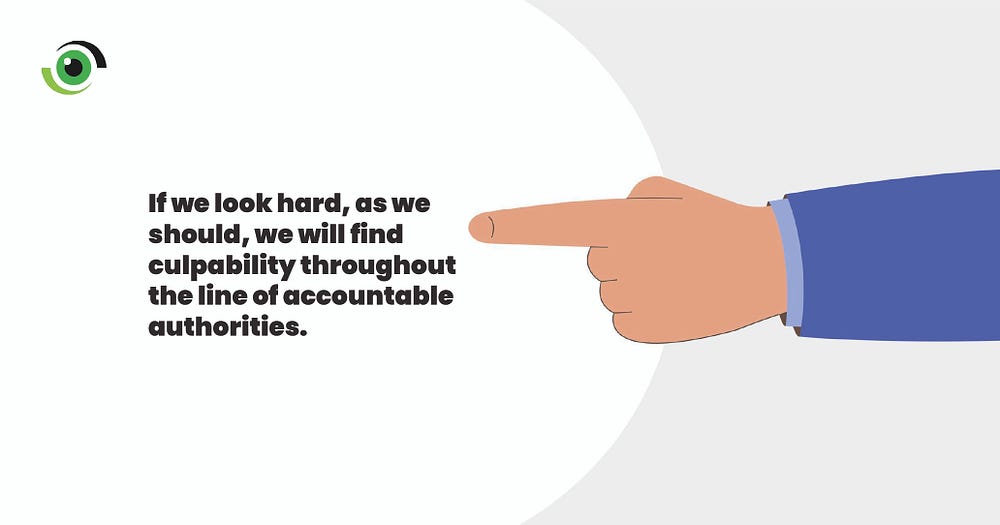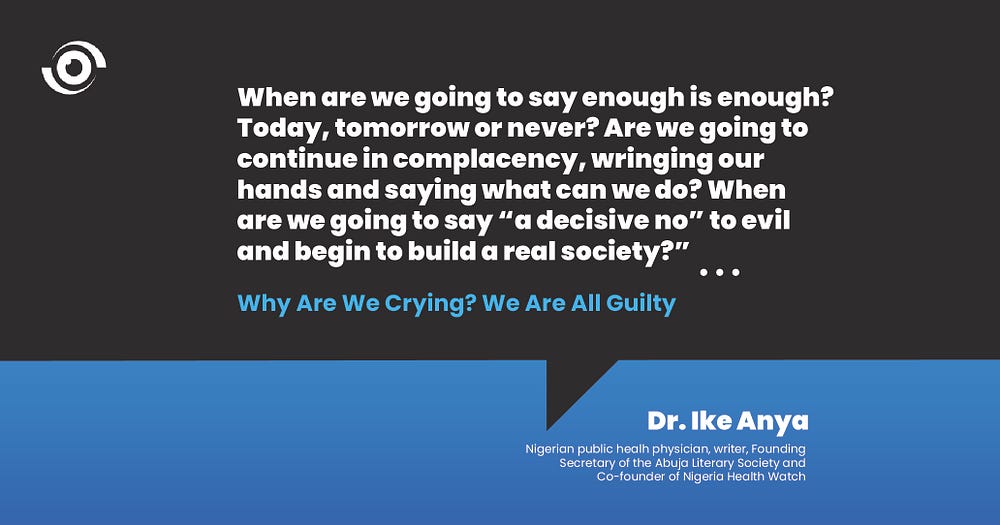The tragic death of Dr Vwaere Diaso in a defective elevator at General Hospital, Odan, Lagos Island, has struck a raw nerve and triggered reactions at the heart of the country’s conscience. The pain of losing their daughter will be unimaginable for her parents and relatives, especially after emerging from a six-year journey through medical school, with all the related struggles, hopes and expectations associated with this. It comes at a time when many health workers are leaving the country, attracted by the better working conditions and salaries offered in countries such as the United Kingdom and Canada, and resident doctors are on strike in Nigeria.
For many Nigerians, this incident is yet another example of poor governance systems that continue to fail them over and again. Attempts to introduce a bill requiring doctors to do a five-year compulsory service period were met with strong opposition from doctors and medical associations as there has yet to be any serious effort to improve their working conditions or the policies that govern them, yet more is being required from them. We have just concluded a general election in which numerous promises were made, particularly in the health sector, yet there is no evidence that things are changing from government to government.
There has been criticism levelled at all levels of government, from the hospital management, who were alleged to have disregarded the warning about the poor state of the lift, to the hospital’s emergency services, who were unable to save the life of one of their own, to the Lagos State Government, for the apparent laxity of the corporate governance processes. Lagos State acted rapidly after the event with an immediate inquiry leading to some repercussions for the negligence that occurred. Additionally, some effort was made towards putting in place systems to prevent such situations in the future. However, sadly stories of this nature are not rare in Nigeria, and almost every family will have a story of negligence that has led to a near miss or often the injury or death of a loved one.
If we look hard, as we should, we will find culpability throughout the line of accountable authorities. The hospital elevator’s apparent disrepair is indicative of much of the country’s weak maintenance culture and accountability procedures. We do not have a culture of holding individuals or institutions accountable, often ascribing accidents to the supernatural. This is, therefore, an opportunity to ask ourselves some difficult questions.

There was a period in Nigeria’s aviation history when we experienced a series of air travel disasters. The acuteness and visual impact of these accidents, as well as the unimaginable pain they caused many families, cannot be easily forgotten. None of these touched the national consciousness at the time more than the Sosoliso crash on 10 December 2005. The pain of the crash was accentuated because it was carrying many school children who were travelling home for the Christmas holiday, including sixty secondary school students from Loyola Jesuit College in the Federal Capital Territory region of Nigeria. As we do so often, the crash led to a lot of introspection and challenging authorities and has probably contributed to increased regulation of the airline industry and reduced air traffic accidents.
At the time, one of the co-founders of Nigeria Health Watch, Dr Ike Anya wrote a piece that circulated widely titled “Why Are We Crying? We Are All Guilty”. While acknowledging the specific responsibilities of a few individuals and institutions as it relates to this particular accident, he argues that it is not enough to solve this specific problem, but challenges us as a society for accepting the complacency, in all walks of life, that leads to the accident we have just experienced. In his piece, he asks poignantly, “When are we going to say enough is enough? Today, tomorrow or never? Are we going to continue in complacency, wringing our hands and saying what can we do? When are we going to say “a decisive no” to evil and begin to build a real society?”

Dr Anya goes ahead to challenge us in this piece published just after the crash: “It is time we stopped crying and pointing fingers at the aviation industry, or at individuals for in the end we are all guilty of murder. We can choose to continue as before and simply move on, or we can decide that there is value in the life of every single Nigerian and that we will do all that we can to protect it. But regardless of our choices, let it be clear that by our actions and inaction, we are accomplices to murder… For in tolerating the evil that pervades our society, we all had a hand in your deaths.”
As we ponder the circumstances of the death of Dr Vwaere Diaso, we urge the many people with the power and influence, not to accept business as usual and to initiate change in their areas of influence. It is not only about elevators and poor service but in everything we do every day in the health sector. How much do we pay attention to detail to ensure that every child scheduled for immunisation is immunised and that every woman scheduled for delivery delivers safely? Our maternal health outcomes in Nigeria are very poor, and many of the deaths of women and girls are avoidable, especially if accountability mechanisms are put in place and each death is acted upon to prevent future deaths. Will we look away from problems and hope that someone else acts, or will we take responsibility?
We dedicate this blog to Dr Vwaere Diaso, to her hopes and aspirations. Her death is final, but we hope that this ignites in us the determination to go the extra mile, not to look away and to do that which is in our hands to do. Yes, this small action will not make headlines, but it will save the tears, and we can move behind the constant hand-wringing when such incidents occur.


